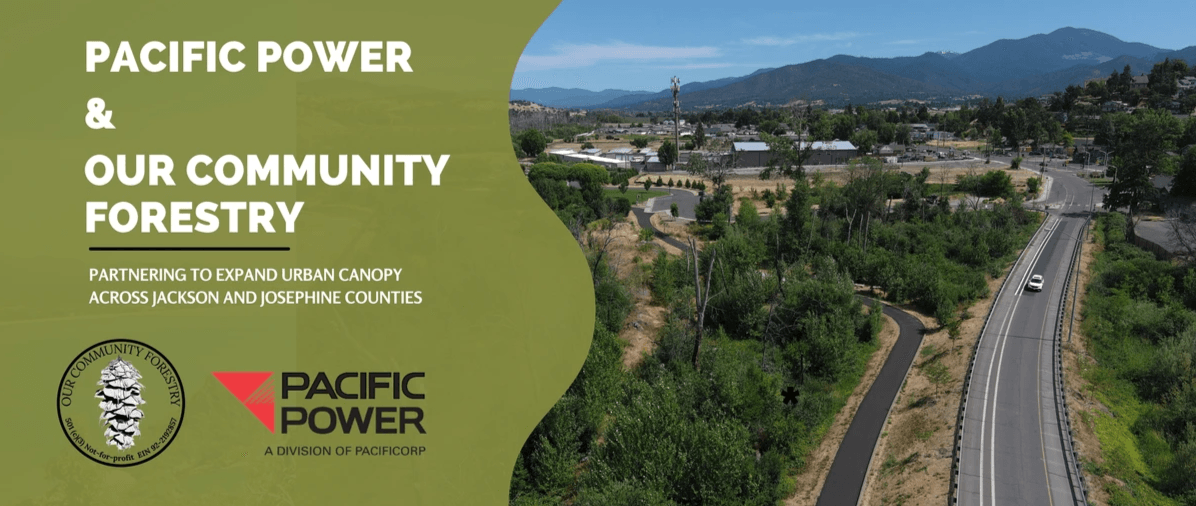
- About Us
- OUR Team
- OUR Mission
- Equity Statement
- …
- About Us
- OUR Team
- OUR Mission
- Equity Statement
- About Us
- OUR Team
- OUR Mission
- Equity Statement
- …
- About Us
- OUR Team
- OUR Mission
- Equity Statement
Welcome to
OUR Community Forestry
Tree by tree, we are growing and stewarding the next generation.
Received a tree voucher from Pacific Power?
We've partnered with Pacific Power to help community members replant trees removed for powerline clearance.
We've committed to helping recipients find and plant the right tree for the right place.

Upcoming Events
PNW ISA Tree Climbing Competition
Join us for the annual tree climbing competition March 11th & 12th. This year it is hosted at Riverside Park in Grants Pass. We hope to see you there!
Funding Acknowledgement
We wouldn’t be able to do our work without the critical support, partnership, and funding from the following organizations. Oregon Department of Forestry’s Urban and Community Forestry Program, USDA Forest Service Urban and Community Forestry Program, The Oregon Department of Land Conservation and Development, The Arbor Day Foundation, The Nature Conservancy, and our friends at Plant Oregon and Rogue Reconnaissance.











